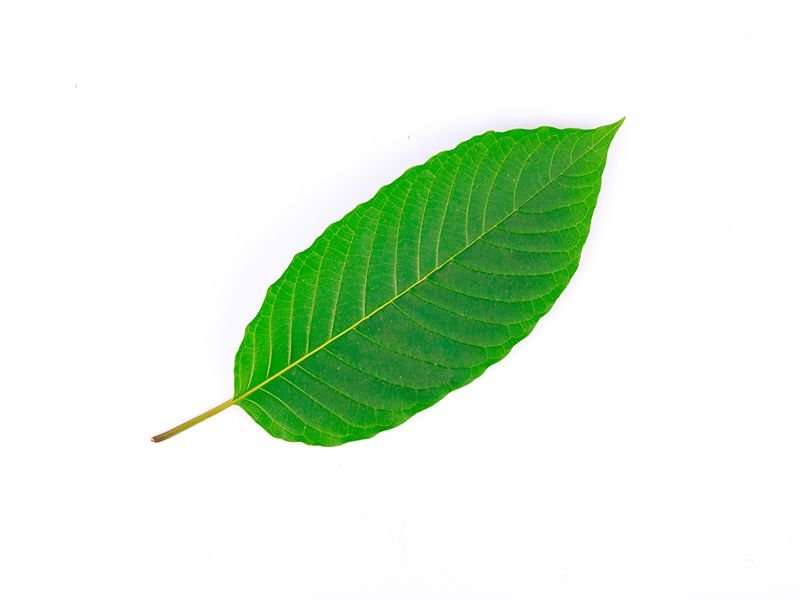Herbal drug kratom contains opioids, FDA says

(HealthDay)—The popular botanical drug kratom essentially is an opioid, the U.S. Food and Drug Administration declared Tuesday.
Nearly all of kratom's major compounds bind to opioid receptors in the human brain, and two of the top five most prevalent compounds activate those receptors, FDA Commissioner Scott Gottlieb said in a statement.
In addition, there have been 44 reported deaths associated with the use of kratom, often in combination with other substances, Gottlieb said.
Kratom grows naturally in the Southeast Asian countries of Thailand, Malaysia, Indonesia and Papua New Guinea. It has been sold as a dietary supplement to help manage pain and boost energy.
"Kratom should not be used to treat medical conditions, nor should it be used as an alternative to prescription opioids," Gottlieb said. "There is no evidence to indicate that kratom is safe or effective for any medical use."
Claims that kratom is harmless because it's just a plant are "shortsighted and dangerous," Gottlieb continued, noting that heroin also is derived from poppy plants.
Gottlieb urged people to seek help from a health care provider if they are using kratom to self-medicate for pain or to treat opioid withdrawal symptoms.
"There are safe and effective, FDA-approved medical therapies available for the treatment of opioid addiction," Gottlieb said. "Combined with psychosocial support, these treatments are effective."
Concerns over kratom have been growing in recent years. For example, calls to poison centers regarding kratom increased tenfold between 2010 and 2015, rising from 26 to 263, according to the U.S. Centers for Disease Control and Prevention.
More than one-third of the poison center calls reported use of kratom in combination with other substances, such as illicit drugs, prescription opioids or over-the-counter medications, the CDC said.
"Cases of mixing kratom, other opioids and other types of medication is extremely troubling because the activity of kratom at opioid receptors indicates there may be similar risks of combining kratom with certain drugs, just as there are with FDA-approved opioids," Gottlieb said.
To assess the potential risks of kratom, FDA researchers used 3-D computer technology to evaluate the chemical constituents of the plant and simulate how they would affect various receptors in the brain.
Computer analysis predicted that 22 of the 25 most prevalent compounds in kratom bind to mu-opioid receptors, which have been linked to pain relief and a feeling of euphoria, Gottlieb said. Those receptors also have been implicated in the addiction process.
"The computational model also predicted that some of the kratom compounds may bind to the receptors in the brain that may contribute to stress responses that impact neurologic and cardiovascular function," Gottlieb said. "The agency has previously warned of the serious side effects associated with kratom, including seizures and respiratory depression."
The analysis also revealed that kratom's compounds form a strong bind to opioid receptors, comparable to controlled opioid medications, Gottlieb said.
In a statement, the American Kratom Association said that the FDA analysis is "an unprecedented abuse of science to create a new computer program that is clearly garbage in/garbage out, avoiding the rules of the Controlled Substances Act and making unproven claims that have been proven to be untrue."
The FDA's claims also have been questioned by kratom researcher Scott Hemby, chair of the department of basic pharmaceutical sciences at High Point University in North Carolina.
Hemby has found that kratom's principal chemicals do bond to opioid receptors and cause opioid-like effects such as pain relief and a euphoric rush from a release of the neurotransmitter dopamine. At least one of the chemicals may also have some addictive properties.
However, Hemby told CNN that kratom acts much less effectively than prescription opioids or heroin, and that the total amount of these compounds in the plant as a whole is so low that it's unlikely to lead to abuse or addiction.
"Just because it binds, it doesn't mean it has the same efficacy" as an opioid, Hemby explained.
Hemby also questioned the FDA's use of computer analysis to arrive at its conclusion.
"They make a lot of hay of using a computer model, but it's really nice to validate the findings with actual science," Hemby told CNN. "When it comes to drugs for cancer, we wouldn't rely on a computer model to drive policy. People would find that unacceptable."
More information: To read the kratom statement, visit the U.S. Food and Drug Administration.
Copyright © 2018 HealthDay. All rights reserved.
















